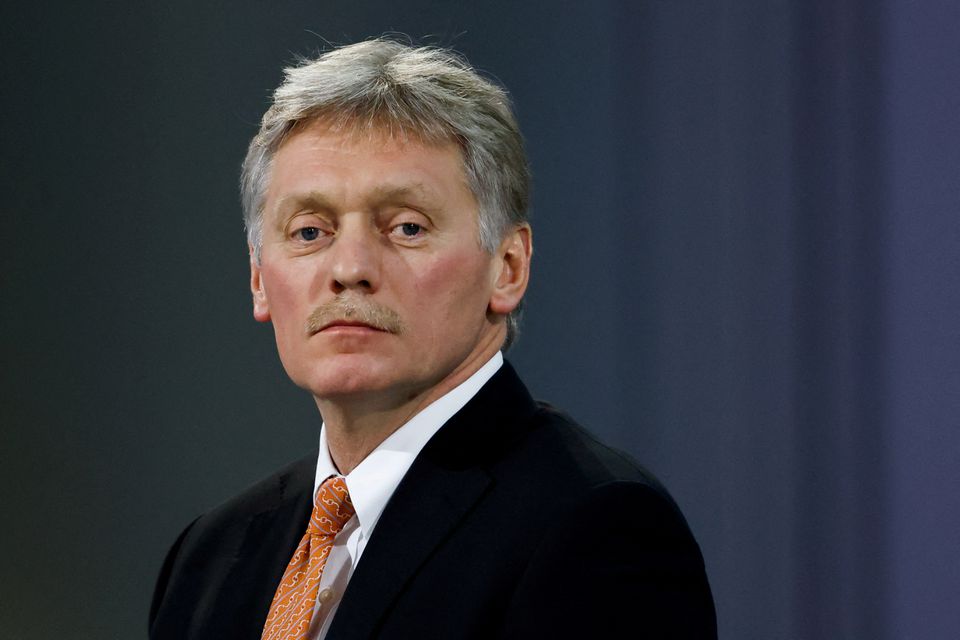Allegations made by western media suggesting that Russia is looking to impose “political terms” on Uzbekistan in exchange for gas have been denied on Thursday by the Kremlin.
On Thursday, the UK-based Reuters published an article claiming that the Central Asian nation criticized the Kremlin’s initiative to establish a Russia-initiated “trilateral gas union.”
“No one is talking about gas in exchange for political conditions, and this is not even discussed in the context of the idea of creating this union,” TASS quoted Kremlin Spokesman Dmitry Peskov as saying. “We are talking about, of course, the commercial side, we are talking about the coordination of actions in the interests of states.”
Peskov further clarifies that each side will continue to sell its energy resources to counterparties, focusing solely on commercial terms.
“The countries are interested in coordinating their actions on the further laying of transport routes, on determining further directions for the development of gas infrastructure, on meeting their domestic needs for natural gas, and here everything is quite closely intertwined,” he added.
The statement came shortly after Uzbek Energy Minister Jorabek Mirzamahmudov noted that “even if a gas agreement is concluded with Russia, this does not mean a union.”
“Uzbekistan does not border with Russia. Therefore, negotiations are conducted to deliver it through neighbouring Kazakhstan. This would be a technical contract … not a union," Mirzamahmudov said on Wednesday, raising speculations among western media that Tashkent is against a “gas union” with Kazakhstan and Russia.
The minister also said that Uzbekistan negotiates through the prism of the country’s national interests when it comes to energy imports. Uzbekistan is interested in cooperation through commercial contracts, not by transferring its power grids, he said.
Last month, Kazakhstan’s President Kassym-Jomart Tokayev met with his Russian counterpart Vladimir Putin in Moscow where the two leaders discussed prospects for Russia, Kazakhstan and Uzbekistan to expand cooperation on gas consumption and transportation infrastructure for both domestic and foreign markets.
Both Russia and Kazakhstan are rich in natural resources like oil and gas and the two post-Soviet countries have maintained strong partnerships in the energy sector through already existing close economic, technological and transportation initiatives.
Meanwhile, Uzbekistan is one of the world’s two double landlocked countries, meaning at least two international borders must be crossed before goods and people can reach a major body of water connected to the world’s oceans. Rich in hydrocarbons, the Central Asian Turkic state is bordered by Kazakhstan to the northwest and north, Kyrgyzstan and Tajikistan to the east and southeast, Afghanistan to the south, and Turkmenistan to the southwest.
Proven crude oil reserves are approximately 594 million barrels, ranking it number 46 in the world; and natural gas reserves measuring 1.84 trillion cubic meters, placing it 19th among the world countries.
The Qashqadaryo province, situated in the southeast and near Bukhara city in the south-central region, is where most of the gas is located. The largest known deposit is Boyangora-Gadzhak, found in the southeastern province of Surkhondaryo.
The Bukhara-Khiva region in the southwest is the largest of Uzbekistan’s oil-rich areas, holding 60 percent of known deposits and 70 percent of the country’s production. The northeastern Mingbulak and western Qoqdumalaq regions are considered the second and third-ranking oil-rich regions in the country of 35 million people.
In recent years, 211 hydrocarbon deposits have been discovered in Uzbekistan, 108 of which are gas and gas condensate fields.







 Armenian sappers commenced on Monday mine-clearance operations in the territories adjacent to the Saint Mary Church in village of Voskepar (Armenia...
Armenian sappers commenced on Monday mine-clearance operations in the territories adjacent to the Saint Mary Church in village of Voskepar (Armenia...
 Russian Foreign Minister Sergei Lavrov has reasserted that Moscow has no intentions to stop the fighting in Ukraine, even if peace talks commence.
Russian Foreign Minister Sergei Lavrov has reasserted that Moscow has no intentions to stop the fighting in Ukraine, even if peace talks commence.
 Iran has refuted reports of alleged damage to Shimon Peres Negev Nuclear Research Centre located southeast of Dimona, Israel, during the recent air...
Iran has refuted reports of alleged damage to Shimon Peres Negev Nuclear Research Centre located southeast of Dimona, Israel, during the recent air...
 Iran and Pakistan have signed eight cooperation documents in various fields, and agreed to strengthen ties to fight terrorism in the region.
Iran and Pakistan have signed eight cooperation documents in various fields, and agreed to strengthen ties to fight terrorism in the region.



